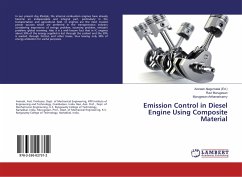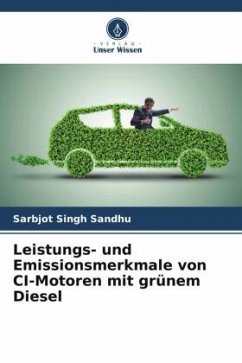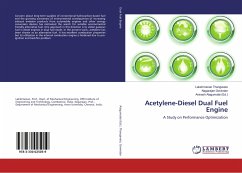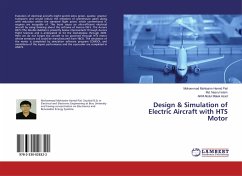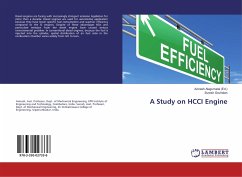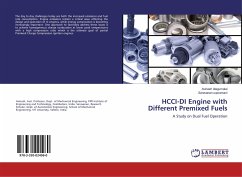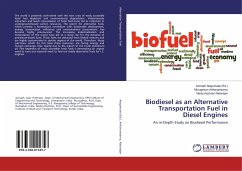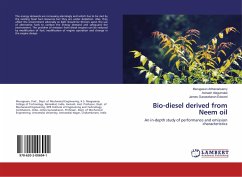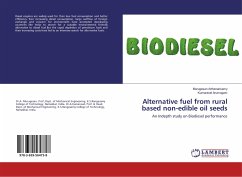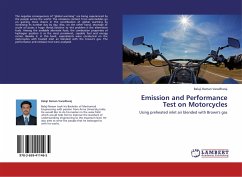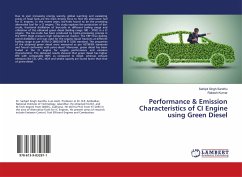
Performance & Emission Characteristics of CI Engine using Green Diesel
Versandkostenfrei!
Versandfertig in 6-10 Tagen
24,99 €
inkl. MwSt.

PAYBACK Punkte
12 °P sammeln!
Due to ever increasing energy scarcity, global warming and escalating prices of fossil fuels are the main driving force to find the alternative fuel for IC engines. In the recent years, bio-fuels found to be the promising alternative fuel for a CI engine. This study explores the production of bio-crude, fractional distillation of biocrude at different boiling range and utilization of the obtained green diesel (boiling range 180 - 370C) in a CI engine. The bio-crude has been produced by hydro-processing process in the HPHT (high pressure high temperature) reactor. The TBP (True boiling point) d...
Due to ever increasing energy scarcity, global warming and escalating prices of fossil fuels are the main driving force to find the alternative fuel for IC engines. In the recent years, bio-fuels found to be the promising alternative fuel for a CI engine. This study explores the production of bio-crude, fractional distillation of biocrude at different boiling range and utilization of the obtained green diesel (boiling range 180 - 370C) in a CI engine. The bio-crude has been produced by hydro-processing process in the HPHT (high pressure high temperature) reactor. The TBP (True boiling point) distillation unit was used for the organic liquid fractions at different boiling range as per ASTM D 2892/ASTM D 5236 standard. The properties of the obtained green diesel were measured as per ASTM/EN standards and found conformity with petro-diesel. Moreover, green diesel has been fueled in the CI engine for engine performance and emission characteristics. The obtained results showed that green diesel has higher BTE with comparable BSFC as compared to diesel, whereas exhaust emissions like CO, UHC, NOX and smoke opacity are found lower than that of petro-diesel.



